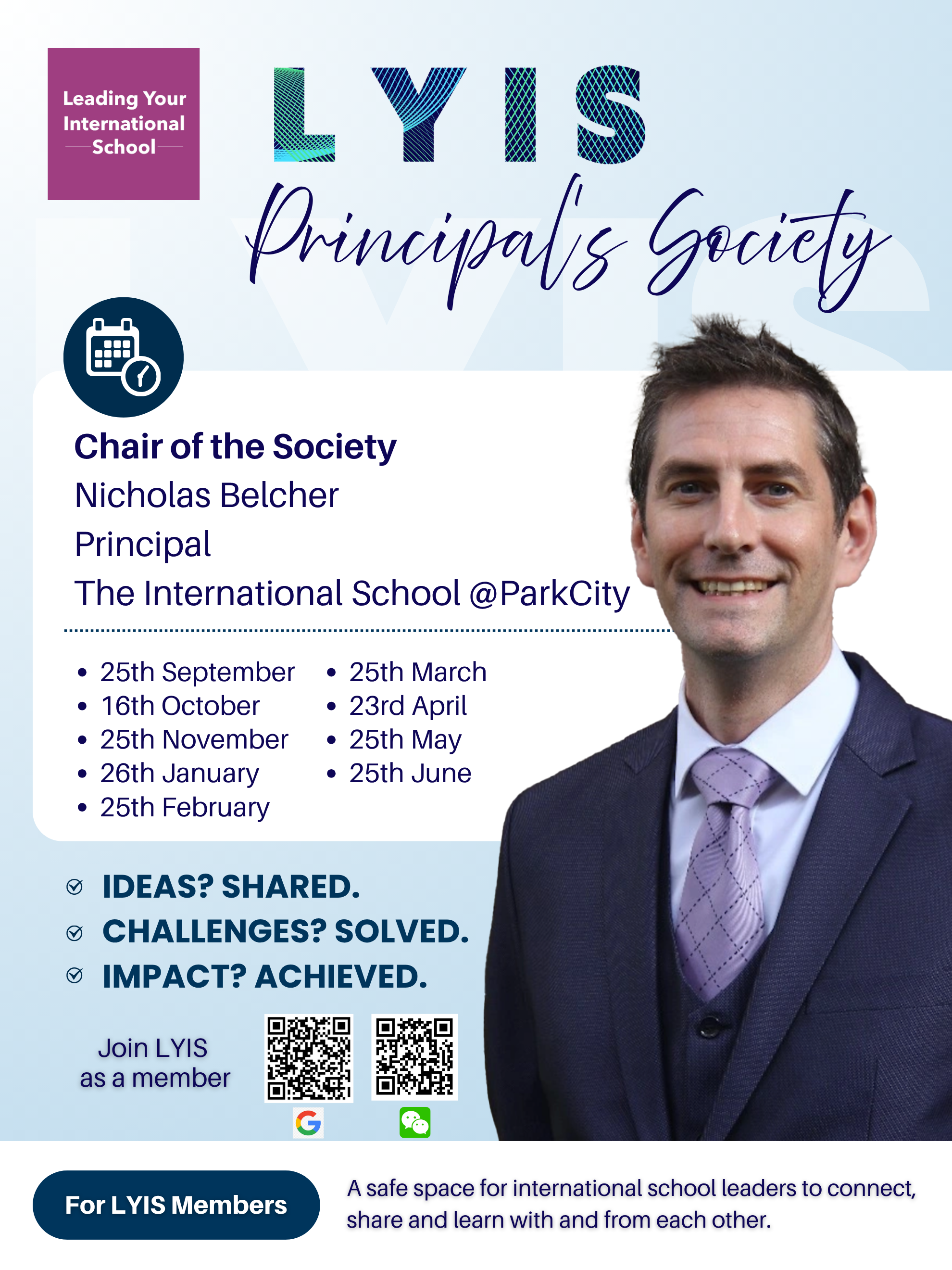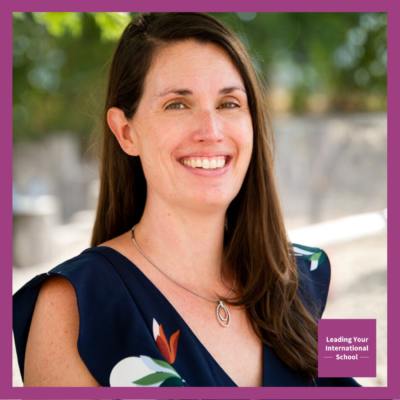by Megan Dreher
As an educator for the past 20 years, I am acutely aware of the demands of the school year and the limited time available for professional development (PD).
Yet, carefully designed PD – particularly for multilingual parents, teachers, and administrators – can significantly strengthen teaching and learning. In this article, I would like to share how the Frankfurt International School (FIS) intentionally designs PD to foster inclusion, build shared professional foundations, and embed consistent systems of support for multilingual learners
Fostering Inclusion and Student-Centred Practices at FIS
During the 2025–2026 school year, professional learning at FIS is being guided by a central objective: advancing inclusion and student-centred practices. This work extended beyond teachers to actively involve families.
Language education specialist Eowyn Crisfield facilitated several parent information evenings, emphasising the critical role families play in supporting their children’s home languages. Research and practical experience demonstrate that valuing and integrating students’ home languages is essential for effective English Language Acquisition (ELA) instruction – and this work cannot succeed without parental engagement.
Building on this foundation, teachers deepened their instructional practices. Drawing insights from an IB workshop, FIS educators collaboratively developed student language profiles to share with families and created systems to ensure this information is accessible and actionable across classrooms.
Following conversations with Eowyn Crisfield, Identity Language Coordinator Marta Luján organised a professional learning visit to UWC Maastricht, where she and World Languages Head Marc Hergle explored how the school is developing its program through a translanguaging lens. At FIS, the Identity Language initiative offers tailored lessons for middle and high school students, fostering and strengthening their identity languages. A key insight from the visit was the possibility of weaving students’ language journeys and personal aspirations into a language and literature course designed to honour and expand diverse linguistic backgrounds. Currently, Marta Luján is shaping a student-centred curriculum for 10th graders with the invaluable support of two dedicated tutors, while also investigating how AI tools might enhance engagement in this self-directed pathway.
Our cross-campus ELA professional development series further extended this work through mini-workshops on translanguaging in drama and applying UDL principles to minimise learning barriers. Additionally, an in-service day with Matthew Savage emphasised that true inclusion encompasses not only access to content but also belonging – where every student is seen, heard, and valued without conditions.
Strengthening the Foundations of ELA Instruction
The ELA department took the lead in designing PD to reinforce pedagogically sound practices across all campuses. Leveraging a flexible end-of-year schedule following WIDA testing, FIS hosted a cross-campus PD day focused on refining and aligning core instructional strategies.
During this session, teachers collaborated using common planning documents and deepened their understanding of WIDA ELD standards, ensuring consistent and effective support for English language development. This work was guided by the principle that “Academic language…is best taught within the context of the content classroom” (Honigsfeld, 2019).
This professional development was designed and led by our ELA teachers, underscoring the power of teacher expertise in shaping a strong program. When educators are given the opportunity to share their knowledge, they not only strengthen the collective capacity of the team but also build confidence in their own voices. That confidence empowers ELA teachers to advocate for multilingual learners and to collaborate more effectively with both classroom teachers and administrators.
Consistency of Systems that Drive ELA Support
The final layer of ELA PD focused on establishing consistent systems of support for multilingual learners. Teachers analysed WIDA test results and utilised tools from the MLRC and the WIDA Annual Conference to enhance their understanding of these assessments. A comprehensive document was created to outline all support provided based on these results. Equity-oriented policy guided this work: “Equality of opportunity derives from treating people differently, and we now call this equity.”
Within these professional development opportunities with Eowyn Crifield—and in our regular team meetings – ELA teachers dedicated time to discuss pedagogy specific to supporting newcomers, as well as exploring practical tools. For instance, when teachers expressed a need for more training in phonemic awareness, ELA and Learning Support teacher Logan Hartley stepped in to lead ongoing University of Florida Literacy Institute (UFLI) sessions. The UFLI program is a comprehensive approach to early literacy skill building that is undergirded by the most current research on best literacy teaching practices. This direct, systematic approach addresses phonological and phonemic awareness, phonics, letter formation for handwriting, decoding, reading fluency, and spelling. By carving out just 10 minutes of each ELA team meeting, Logan shares targeted strategies and resources, while also creating space for colleagues to reflect on their classroom experiences and ask questions. This consistent, embedded approach keeps professional learning relevant, responsive, and immediately applicable.
Professional development opportunities were also extended to our middle school content teachers and the MS ELA teacher, who attended a workshop at the International School of Amsterdam facilitated by Beth Skelton and Tan Huynh. The focus was on building systems for co-planning lessons that better support long-term English language learners. This experience equipped our teachers with a shared vocabulary and common understanding, making collaboration more seamless. Importantly, they brought their learning back to the wider faculty, sharing strategies and insights during a school-wide meeting – extending the impact of the PD well beyond those who attended.
Conclusion
Professional development at FIS is intentionally designed to foster inclusion, build professional coherence, and embed sustainable systems that support high-quality ELA instruction. By remaining teacher-driven, it ensures both value and feasibility within the school schedule. Through multimodal and flexible PD structures, teachers are set up for success with accessible, responsive opportunities that meet diverse learning needs. Looking ahead, FIS aims to extend these PD opportunities to all staff members, continuing to cultivate a culture of equity, collaboration, and student-centred excellence. We welcome the opportunity to continue these conversations with fellow educators. If this resonates with you, we encourage you to connect with us and share your perspective.
megan_dreher@fis.edu (ELA & Identity language coordinator at FISW)
Marta_lujan@fis.edu (Identity language coordinator & multilingual literature and language pilot at FISO)
Megan Dreher, Middle School ELA Teacher, Identity Language & ELA Coordinator, Frankfurt International School
LYIS is proud to partner with WildChina Education

Join LYIS as a member principal today and unlock 9 annual sessions of the LYIS Principal’s Society:

